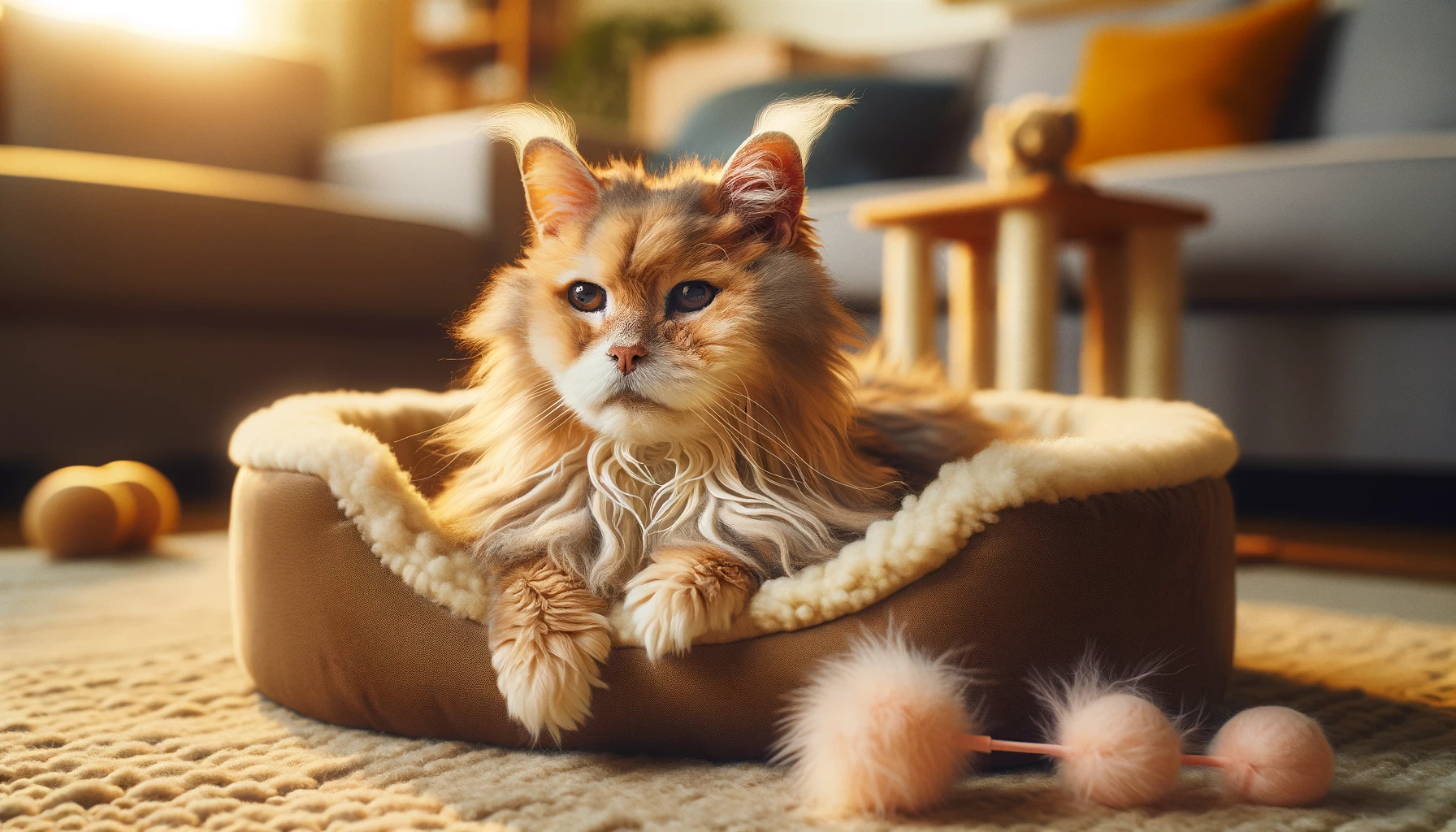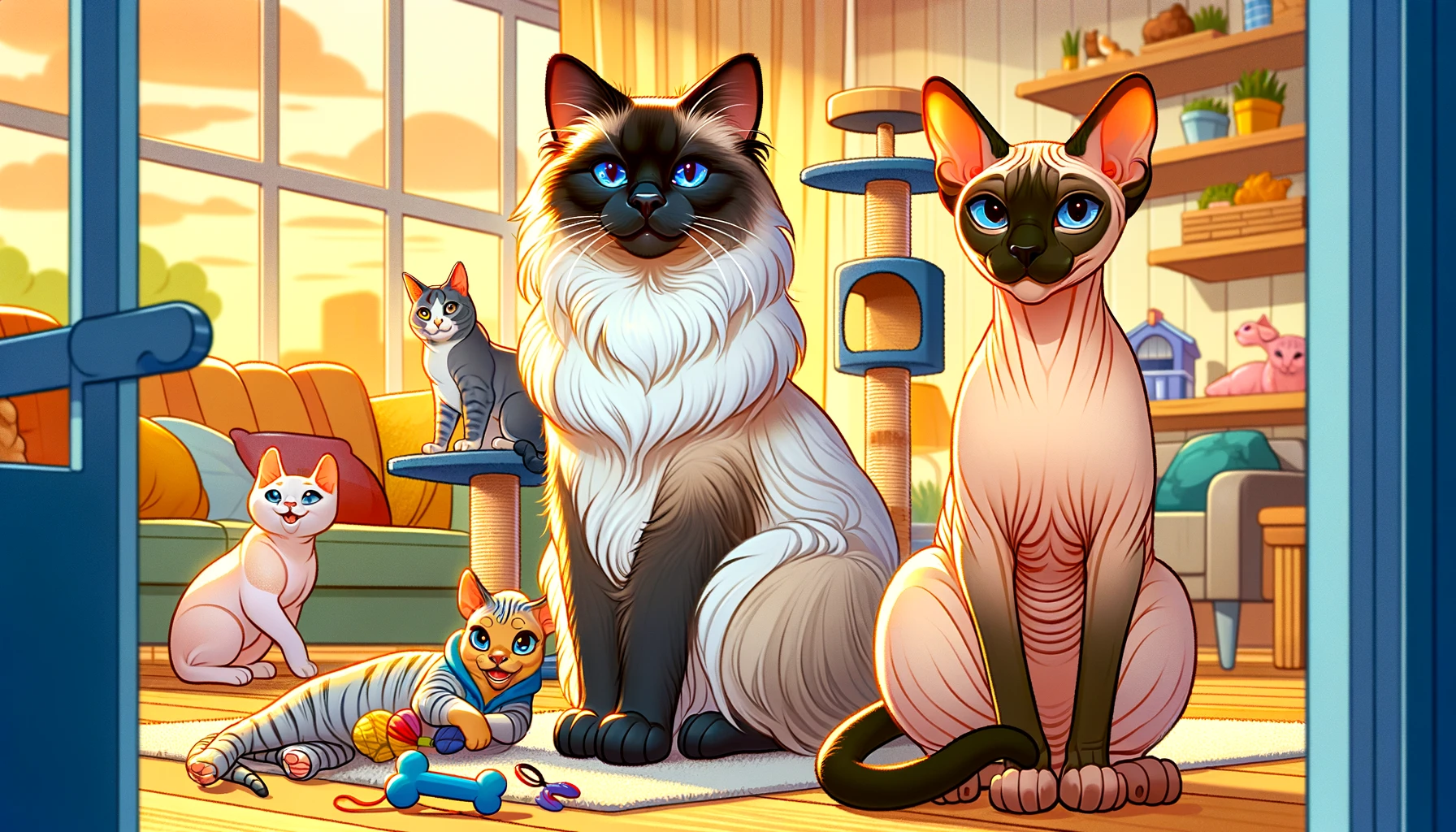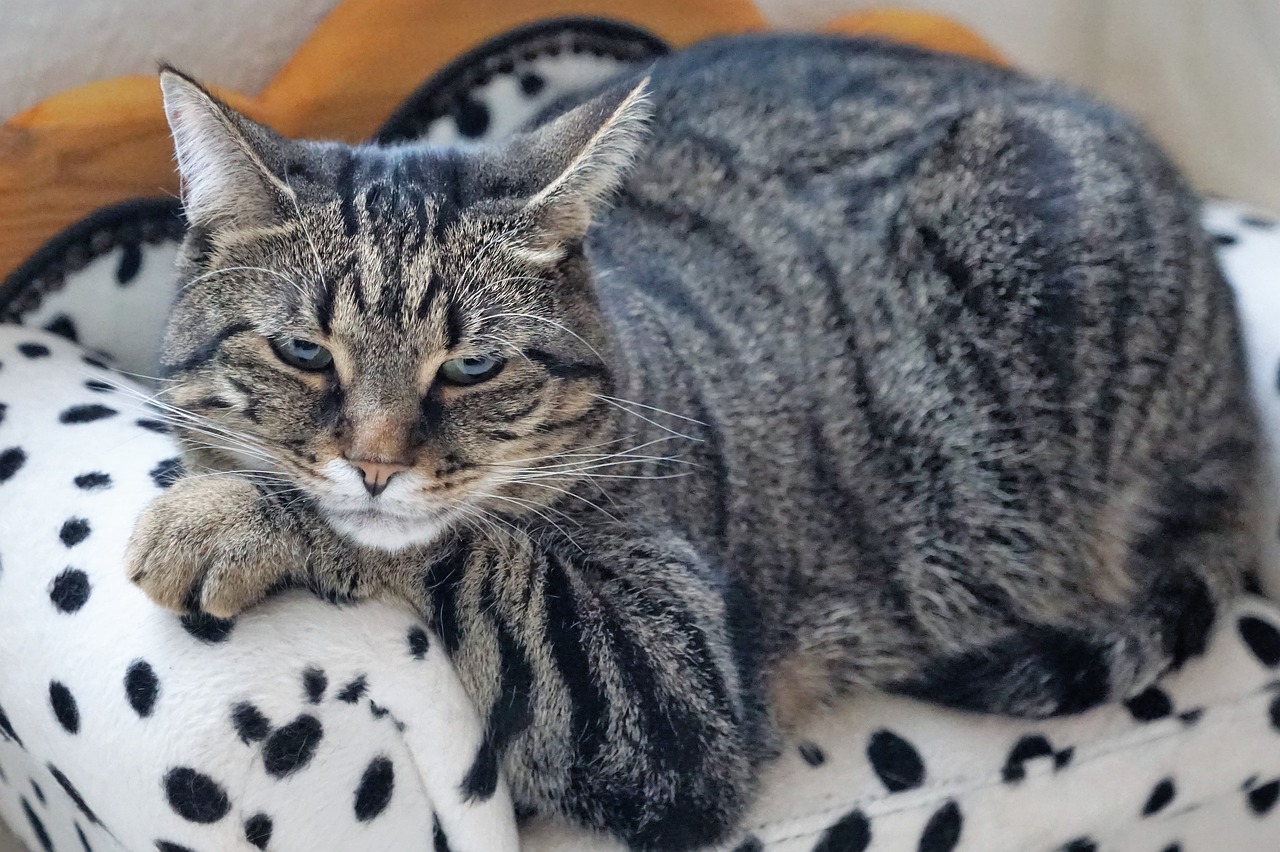Cats. Those adorable, mysterious, and often enigmatic creatures that grace our lives with their presence (when they feel like it, of course). If you’re one of the millions who have fallen under the spell of a feline friend, you might be wondering just how long this love-hate (mostly love, let’s be honest) relationship is going to last. Well, strap in, because we’re about to dive into the thrilling world of feline longevity.
First off, let’s bust a myth: despite popular belief, cats do not have nine lives. Shocking, I know. In reality, they only have one (just like us mere mortals), and how long it lasts depends on a variety of factors.
Indoor Cats vs. Outdoor Cats: The Great Lifespan Debate
Let’s talk about the pampered indoor cats first. These lucky furballs, who spend their days lounging on windowsills and judging you from afar, tend to live longer. I’m talking an average of 13 to 17 years, though some can hit the ripe old age of 20 or even push into their early twenties. This longevity is thanks to their cushy lifestyle, which involves fewer fights, less risk of disease, and a distinct lack of cars trying to flatten them.
On the other hand, outdoor cats are like the daredevils of the cat world. Living on the edge (literally, sometimes on the edge of fences), these felines face more risks. From territorial squabbles with other cats to the thrill of dodging traffic, it’s a wild life out there. As a result, their average lifespan is a bit shorter, usually around 5 to 10 years. It’s the price they pay for freedom and the occasional mouse trophy.
Factors That Influence Your Cat’s Lifespan
Now, let’s get serious for a moment. Several factors can influence how long your whiskered companion will grace your life:
- Genetics: Just like humans, some cats are genetically predisposed to live longer. So, if you’re planning on a long-term cat commitment, maybe ask for a family tree next time you’re at the shelter.
- Healthcare: Regular vet check-ups are like spa days for cats. They might not enjoy it, but it’s essential. Vaccinations, dental care, and addressing any health issues promptly can add years to their life.
- Diet: Feeding your cat a balanced diet is crucial. And no, that doesn’t mean sharing your pizza with them, no matter how much they guilt-trip you with those big, sad eyes.
- Exercise: Yes, even the laziest of cats need some form of exercise. Chasing a laser pointer for five minutes counts, right?
- Spaying/Neutering: This not only helps control the cat population but also can prevent certain health issues, contributing to a longer lifespan.
- Love and Attention: Last but not least, showering your cat with love and attention (on their terms, of course) is key. A happy cat is a healthy cat, after all.
Longest Living Cat Breeds: The Methuselahs of the Feline World
When it comes to longevity, some cat breeds seem to have hit the genetic jackpot. At the top of the list are the Siamese and the Manx breeds, often living well into their late teens or even early twenties. The Siamese, with their striking blue eyes and vocal personalities, are not only known for their longevity but also for maintaining a playful and kitten-like demeanor well into their older years. Similarly, the Manx cat, famous for its taillessness, is also known for its robust health and lengthy lifespan. Another notable mention is the Sphynx, the hairless wonder of the cat world, which often surprises many by its resilience and longevity, living on average between 13 to 15 years. These breeds are the epitomes of feline longevity, proving that with good care, genetics can indeed play a significant role in how long our furry friends stay with us.
Shortest Living Cat Breeds: A Short but Sweet Journey
On the other end of the spectrum, certain cat breeds tend to have shorter lifespans, though they fill their years with love and joy. Breeds like the Bengal and the Savannah, known for their wild ancestry and exotic looks, tend to have slightly shorter lifespans, averaging around 12 to 15 years. This is often attributed to their larger size and the genetic traits inherited from their wildcat ancestors. Another breed with a shorter lifespan is the Scottish Fold, adored for its unique ear shape and sweet demeanor. Due to some of the genetic mutations that give them their distinctive look, Scottish Folds are more prone to certain health issues, which can impact their overall lifespan. It’s important to remember, though, that individual care and health can make a big difference, and many cats of these breeds live full and happy lives well beyond the average.
The Golden Years: When Your Cat Becomes a Senior Citizen

Just like humans, cats go through various life stages, and yes, they do hit those golden years. When does a cat become a senior, you ask? Typically, when they reach about 10 to 12 years old. That’s when they start to slow down, take longer naps, and basically turn into the feline equivalent of a grumpy retiree.
During this time, it’s crucial to adapt to their changing needs. This might include softer food (because dental issues can be a real pain), more comfortable sleeping areas (think plush cat beds, not your keyboard), and gentler playtime. Remember, old cats might not be able to leap buildings in a single bound anymore, but they still enjoy a good game of ‘catch the feather’ at a more sedate pace.
The Record Holders: Methuselahs of the Cat World
Now, let’s talk about some outliers. The world record holders, the cats that laughed in the face of the average lifespan and decided to stick around for a little (or a lot) longer. The oldest cat ever recorded was a lovely lady named Creme Puff from Texas, who lived to the grand old age of 38! That’s like 166 in human years, by the way. While not every cat can aspire to such lofty heights of old age, it’s a fun reminder of just how varied cat lifespans can be.
It’s Not All About Age, It’s About Quality of Life
In the end, while it’s fascinating to know the numbers, what truly matters is the quality of life you provide for your feline friend. A cat that’s well-loved, well-cared-for, and treated as a cherished member of the family is bound to have a fulfilling life, whether it’s for 5 years or 20.
So, spoil them rotten, indulge in those early morning purr sessions, and treasure every moment of their nine lives. After all, cats aren’t just pets; they’re family, confidants, and sometimes, the rulers of our homes (and hearts).
Pro Tips for Extending Your Cat’s Nine (Figurative) Lives

- Mental Stimulation: Keep your cat’s brain active and engaged. Puzzle feeders, new toys, or even cardboard boxes (because let’s face it, cats have a PhD in Boxology) can keep their minds sharp.
- Safe Outdoor Access: If you decide to let your cat explore the great outdoors, consider a cat patio (catio) or harness training. It’s like giving them a taste of wild adventure, but with a safety net.
- Stress Reduction: Cats, like their human servants, don’t enjoy stress. Keep their environment calm and consistent. Major changes in the household? Introduce them gradually. Remember, a stressed cat is more prone to health issues.
- Regular Grooming: Whether your cat is a short-haired tabby or a fluffy Persian, regular grooming helps prevent matting, reduces hairballs, and is a great way to check for any unusual lumps, bumps, or parasites.
- Avoid Obesity: It’s cute but not healthy for cats to be chonky. Maintain a balanced diet and regular exercise to keep them in purrfect shape.
- Emergency Preparedness: Have a plan in place for emergencies. This includes having your cat microchipped, keeping a cat carrier handy, and knowing the location of your nearest 24-hour veterinary clinic.
- Love and Patience: Above all, remember that each cat is unique. They come with their own quirks, personalities, and ways of showing love. Be patient, and you’ll be rewarded with one of the strongest bonds in the animal kingdom.
Frequently Asked Questions About Cat Lifespans
Cats are generally considered seniors when they reach 10 to 12 years of age. This is when they might start showing signs of aging and may require changes in their diet and lifestyle.
Yes, some cat breeds are known to have longer lifespans. For example, Siamese and Manx cats are often reported to live into their late teens or early twenties. However, remember that individual health and care are also major factors.
A healthy aging cat should maintain a steady weight, have clear eyes, and a good appetite. Regular vet check-ups are crucial for monitoring their health, especially as they become seniors.
Yes, spaying and neutering can positively affect a cat’s lifespan. These procedures can prevent certain health issues and reduce the risk of cancers associated with the reproductive system.
Common health issues in older cats include kidney disease, arthritis, hyperthyroidism, and dental disease. Regular veterinary visits are important for early detection and treatment.
For aging cats, consider providing easy access to comfortable resting places, litter boxes with low sides, and ramps or steps to their favorite higher spots. Also, keep their living area warm and draft-free.
Absolutely. Senior cats may benefit from diets formulated for their age, which can help manage weight and provide the right balance of nutrients for older bodies. Consult with your vet for recommendations.
Yes, it’s normal for senior cats to sleep more than their younger counterparts. However, if you notice drastic changes in their sleeping patterns, it’s worth discussing with your vet.
Generally, yes. Indoor cats are less exposed to risks like traffic, predators, and diseases from other animals, which can lead to a longer, healthier life.
Very important! Mental stimulation keeps cats engaged, reduces stress, and can prevent cognitive decline in older cats. Regular playtime and new toys or challenges are beneficial.



